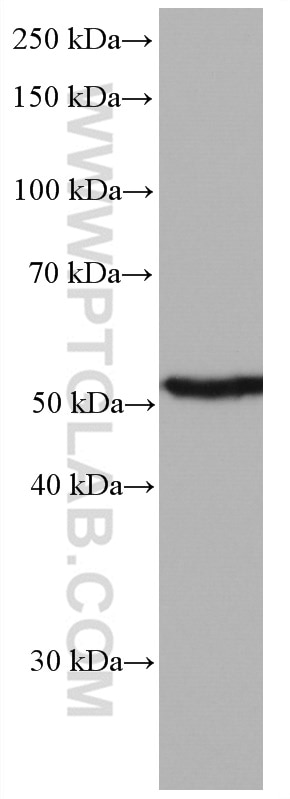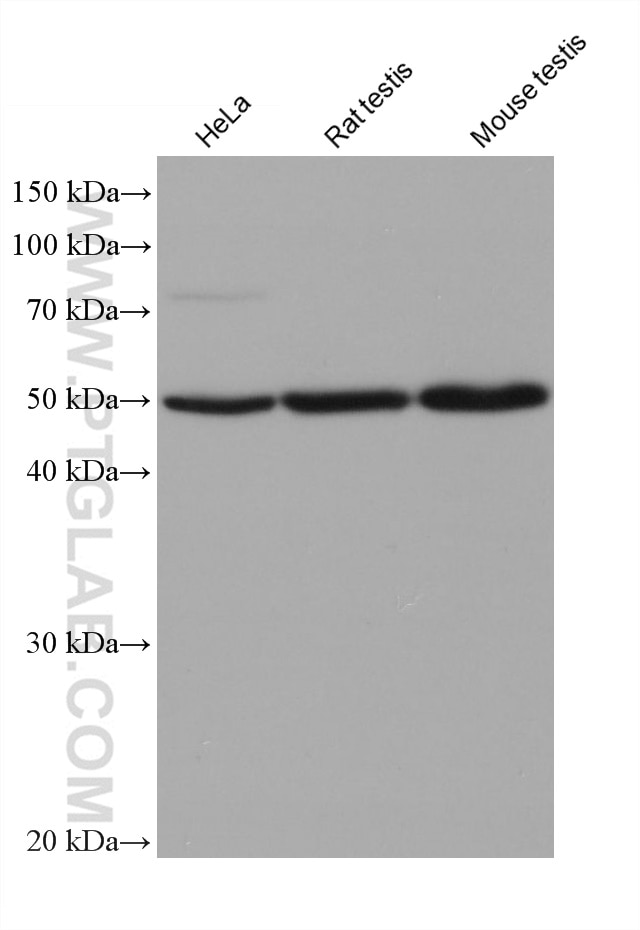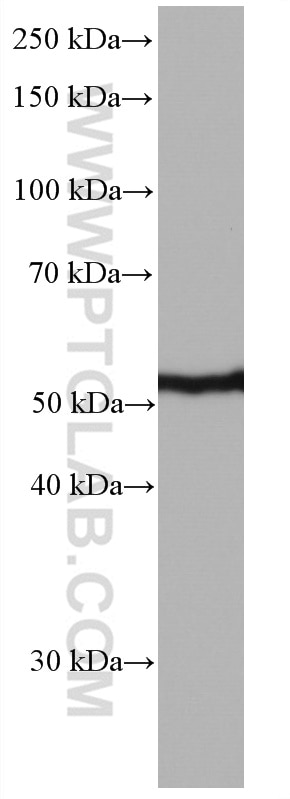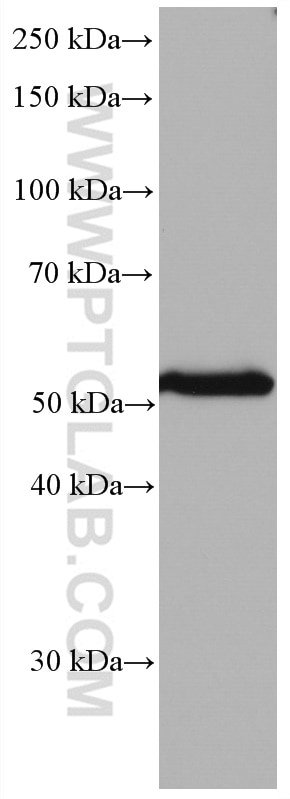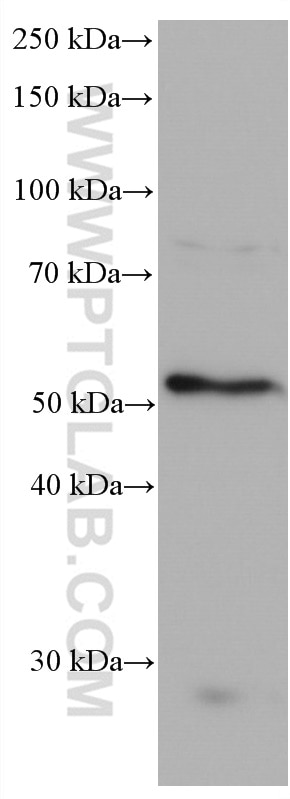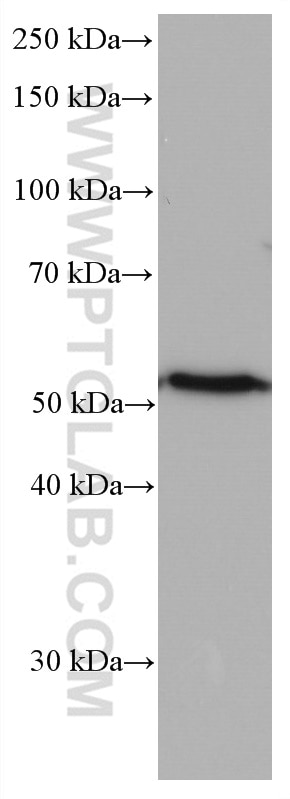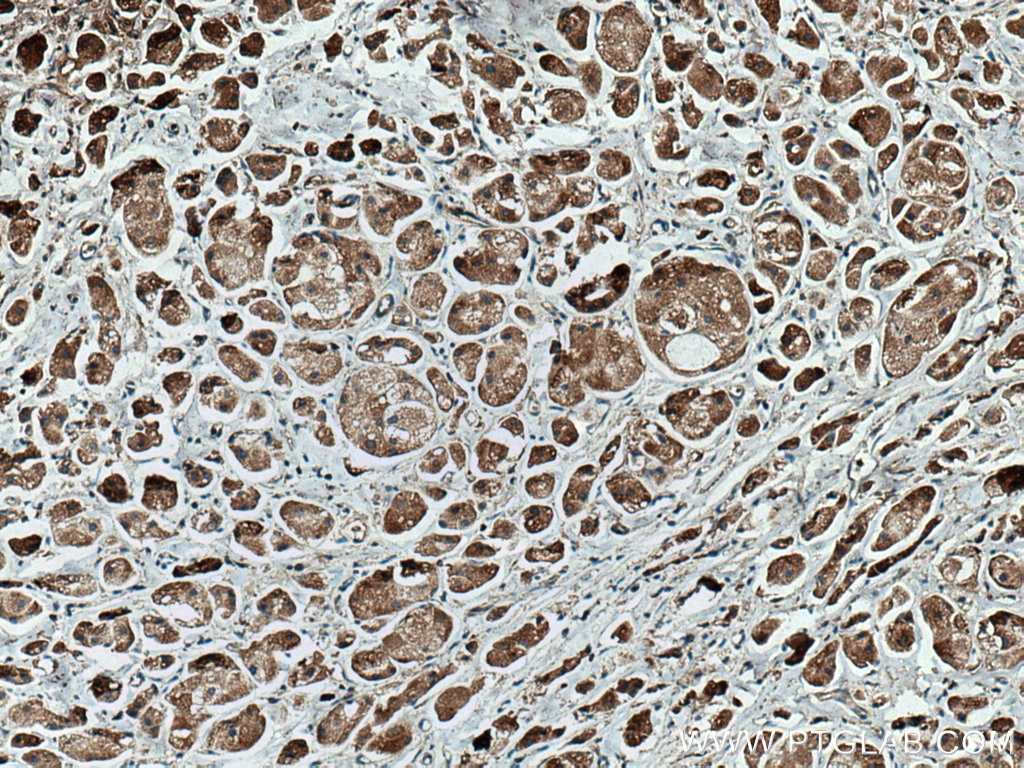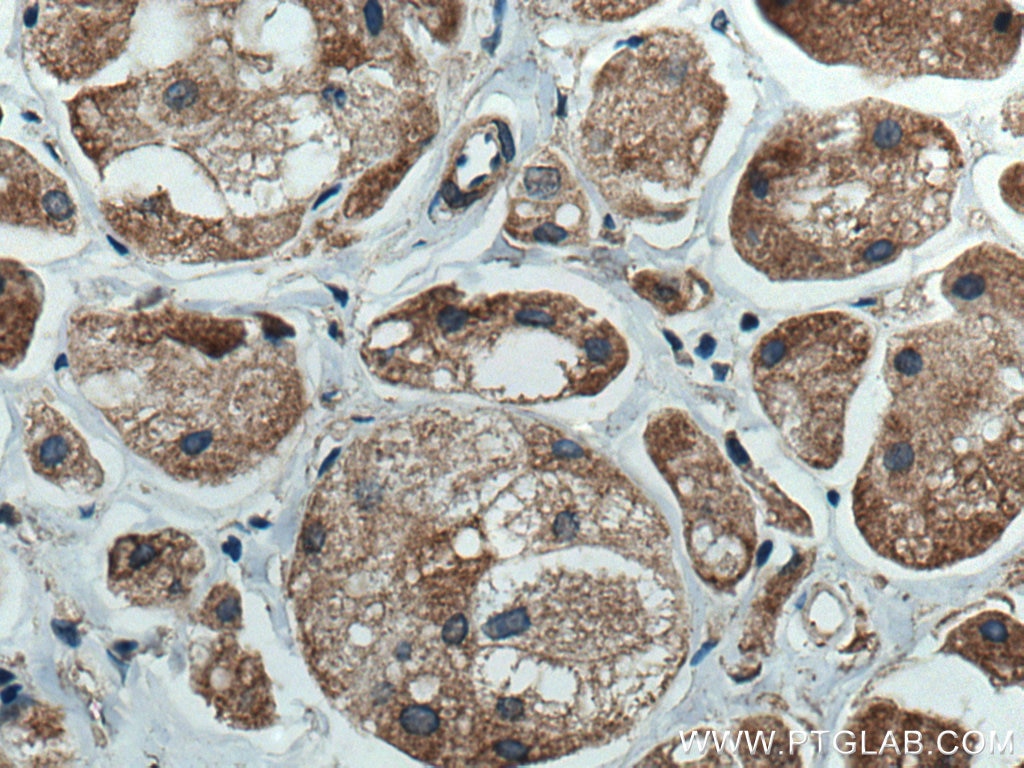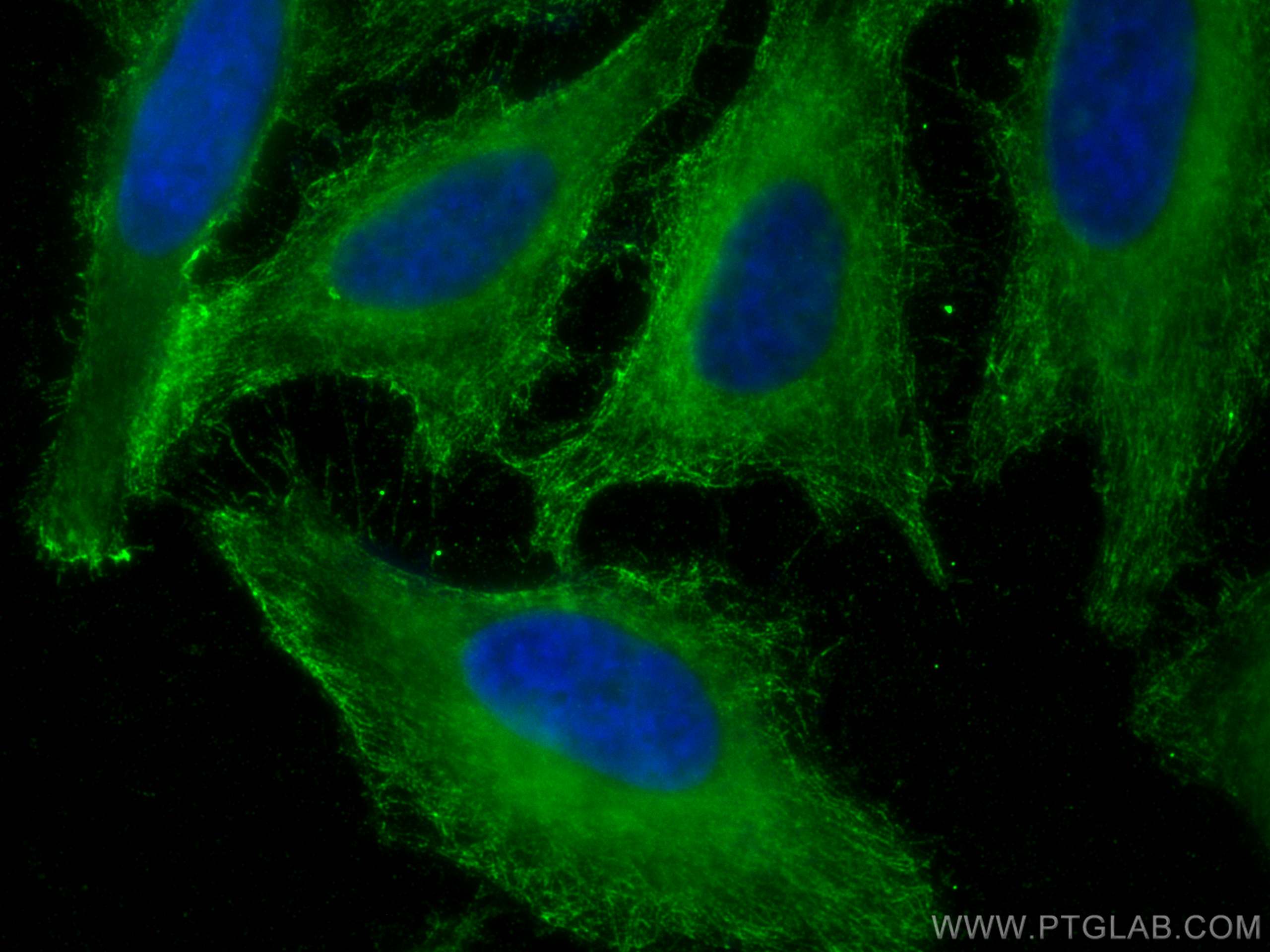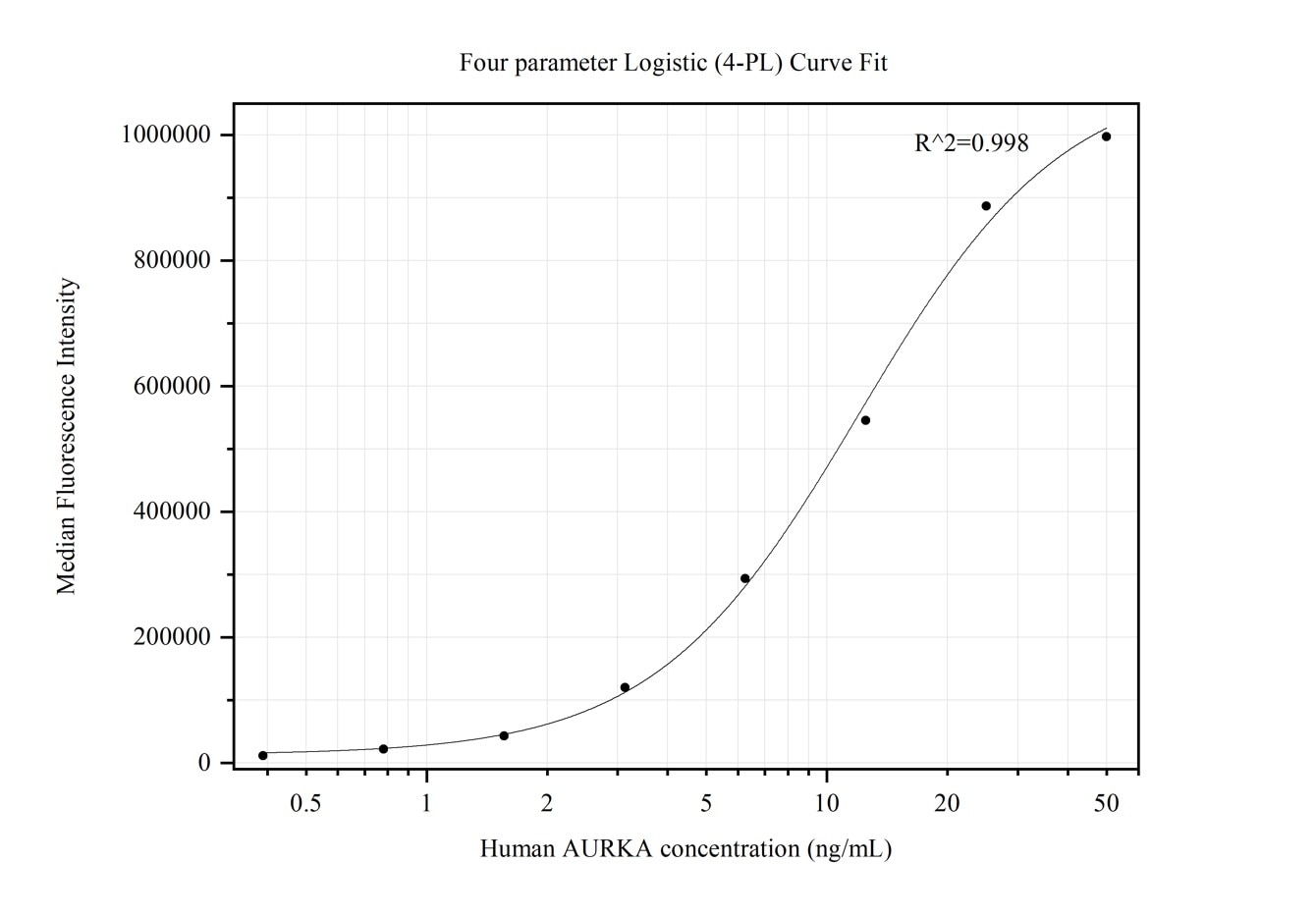- Featured Product
- KD/KO Validated
AURKA Monoklonaler Antikörper
AURKA Monoklonal Antikörper für WB, IHC, IF/ICC, Cytometric bead array, Indirect ELISA
Wirt / Isotyp
Maus / IgG3
Getestete Reaktivität
human, Maus, Ratte
Anwendung
WB, IHC, IF/ICC, Cytometric bead array, Indirect ELISA
Konjugation
Unkonjugiert
CloneNo.
1F4B10
Kat-Nr. : 66757-1-PBS
Synonyme
Geprüfte Anwendungen
Produktinformation
66757-1-PBS bindet in WB, IHC, IF/ICC, Cytometric bead array, Indirect ELISA AURKA und zeigt Reaktivität mit human, Maus, Ratten
| Getestete Reaktivität | human, Maus, Ratte |
| Wirt / Isotyp | Maus / IgG3 |
| Klonalität | Monoklonal |
| Typ | Antikörper |
| Immunogen | AURKA fusion protein Ag20096 |
| Vollständiger Name | aurora kinase A |
| Berechnetes Molekulargewicht | 46 kDa |
| Beobachtetes Molekulargewicht | 46-52 kDa |
| GenBank-Zugangsnummer | BC002499 |
| Gene symbol | AURKA |
| Gene ID (NCBI) | 6790 |
| Konjugation | Unkonjugiert |
| Form | Liquid |
| Reinigungsmethode | Protein-A-Reinigung |
| Lagerungspuffer | PBS only |
| Lagerungsbedingungen | Store at -80°C. 20ul Größen enthalten 0,1% BSA. |
Hintergrundinformationen
AURKA(Aurora kinase A), also named as STK6, STK15 or AIK, belongs to the Ser/Thr protein kinase family. This protein may play a role in cell cycle regulation during anaphase and/or telophase by being involved in microtubule formation and/or stabilization. Some recent evidence revealed that AURKA may also be implicated in tumor development and progression. AURKA is expressed highly in testis and various proliferating cells, migrating as a 46 kDa protein in SDS PAGE.Nuclear staining for AURKA is weak or nonexistent in normal tissue but strong in tumor tissue(PMID:19107951).
